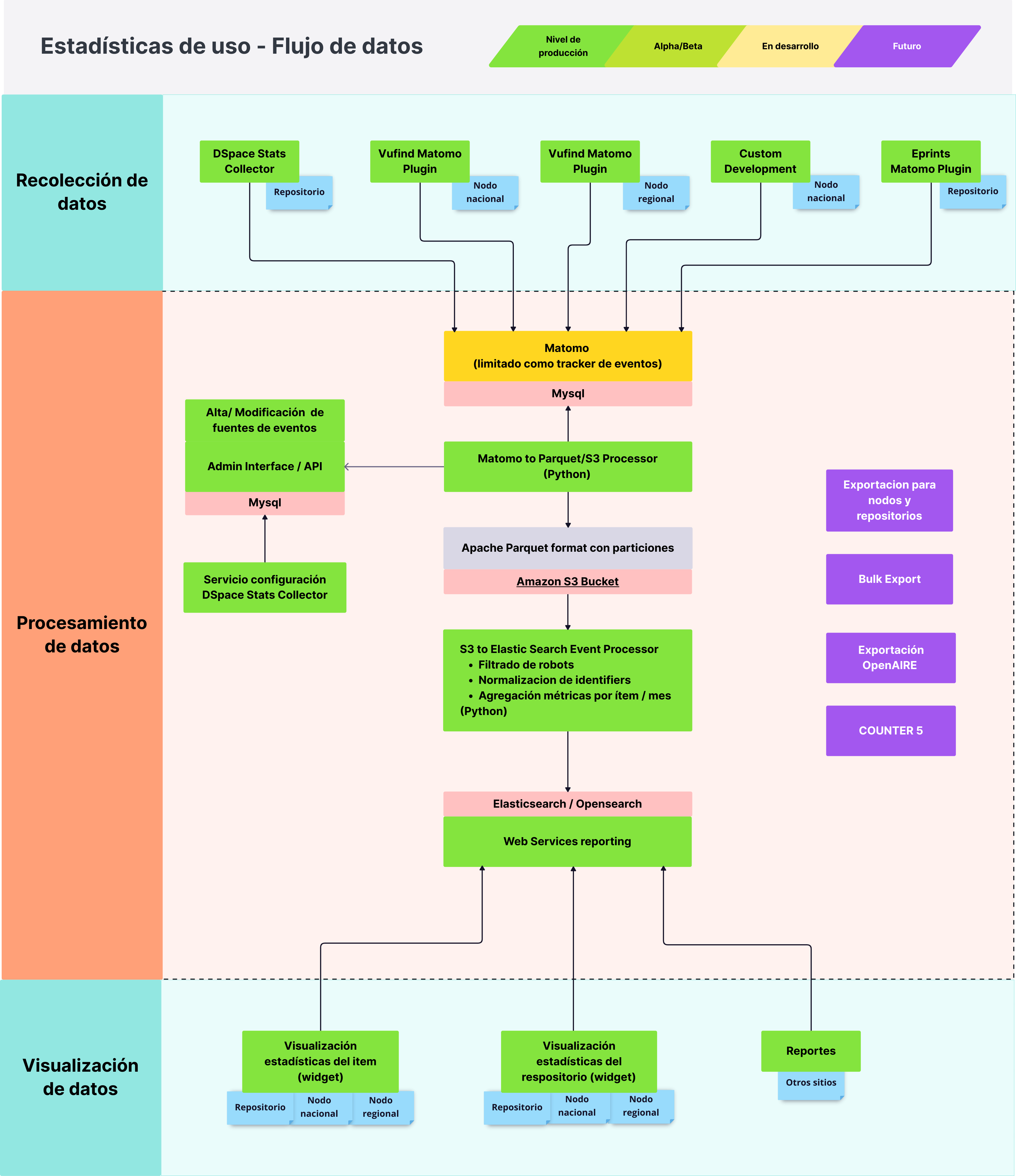01. Introduction
Introduction
The advancement of Open Science largely depends on the development of standardized metrics that can measure the usage and impact of research across different communities and platforms.
The Need for Better Research Metrics
Traditionally, indicators like citations and journal impact factors have been used for this purpose, but they are insufficient to capture the full spectrum of how research outcomes are utilized by society.
Why Traditional Metrics Fall Short
Citation metrics only capture formal academic impact, missing:
- Downloads from diverse user communities
- Usage patterns across different regions
- Other applications outside academia
About LA Referencia
LA Referencia, as a key player in the academic community of Latin America, has led efforts to introduce common usage statistics that complement existing metrics. This project aims to provide a more comprehensive view of how research outputs are used, both by the scientific community and the general public. Through the development of a robust usage statistics service, LA Referencia is moving toward a deeper understanding and increased visibility of the impact of open research.
Recent Advancements
2023/2024 Progress
During the 2023/2024 cycle, the LA Referencia Usage Statistics project, with funding support from SCOSS, underwent significant advancements. It migrated to a more flexible and scalable architecture, improving the system's reliability and enabling the integration of new tools.
Key Achievements
Enhanced Event Tracking
Implementation of more efficient event tracking systems to capture research usage.
Optimized Data Storage
Optimization of data storage through solutions like Amazon S3, ensuring scalability.
Improved Bot Detection
Enhanced bot detection mechanisms to ensure metric accuracy and data quality.
Advanced Identifier Normalization
Introduction of an advanced identifier normalization system to standardize references.
Custom Repository Widgets
Development of custom widgets for repositories, facilitating greater interaction and analysis of usage data.
These advancements enhance LA Referencia's ability to provide a more accurate and detailed view of research usage in the region.

